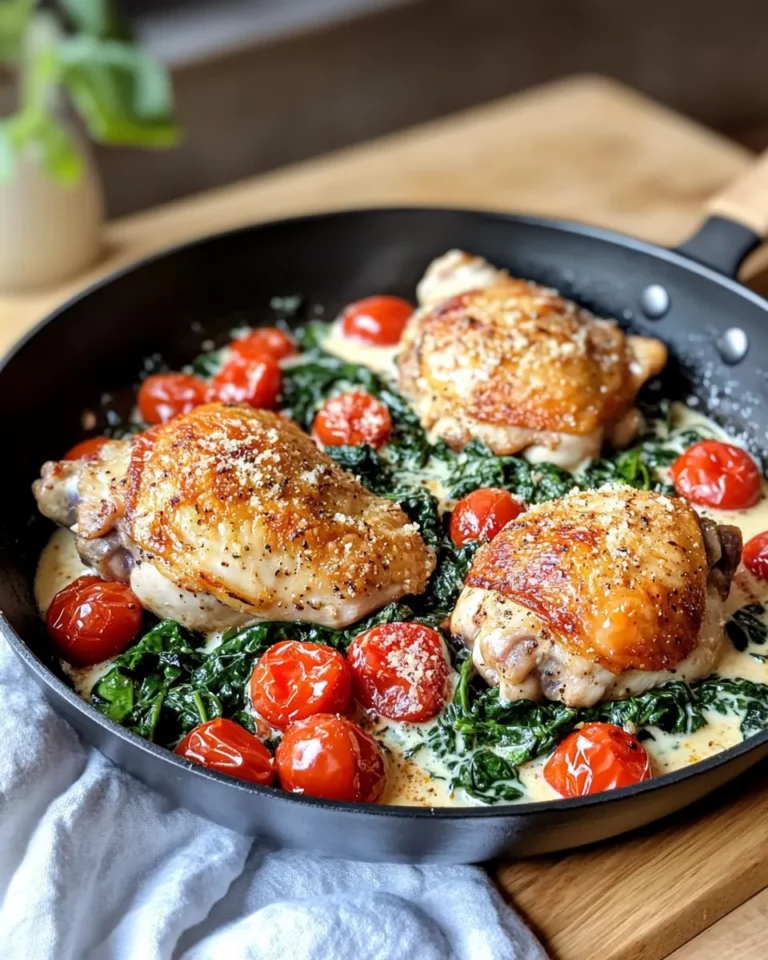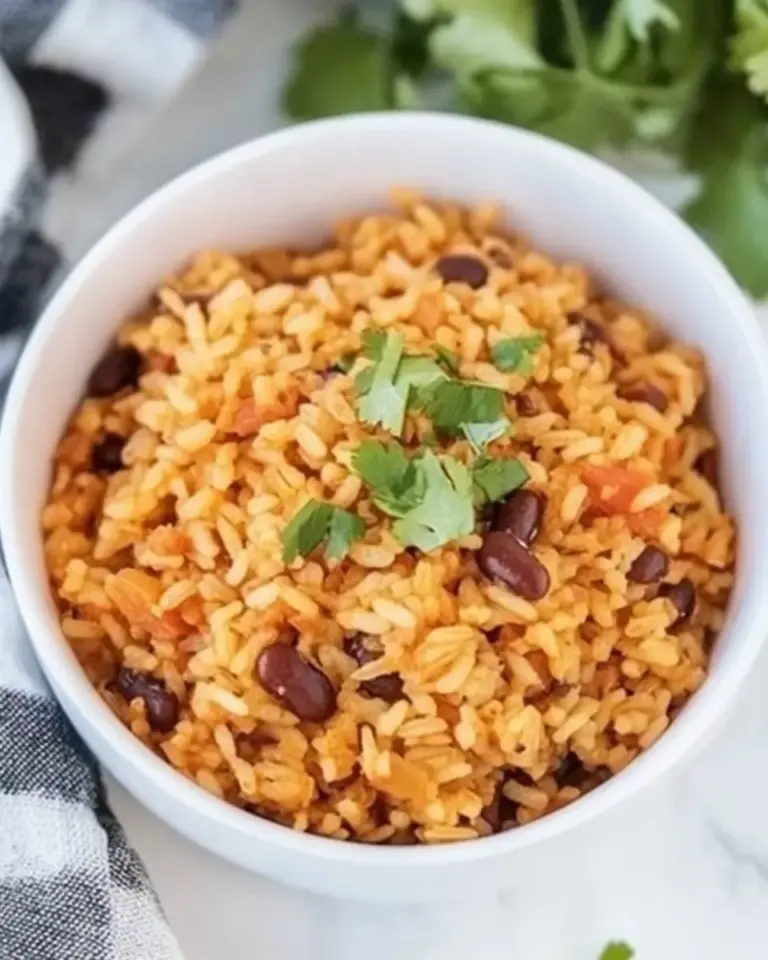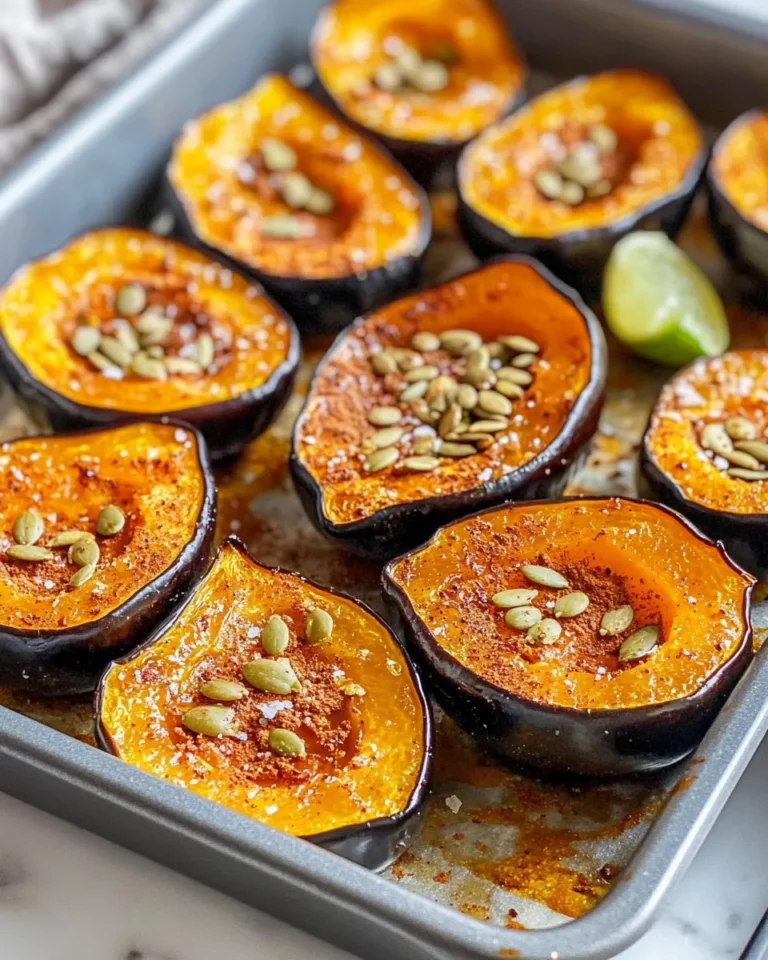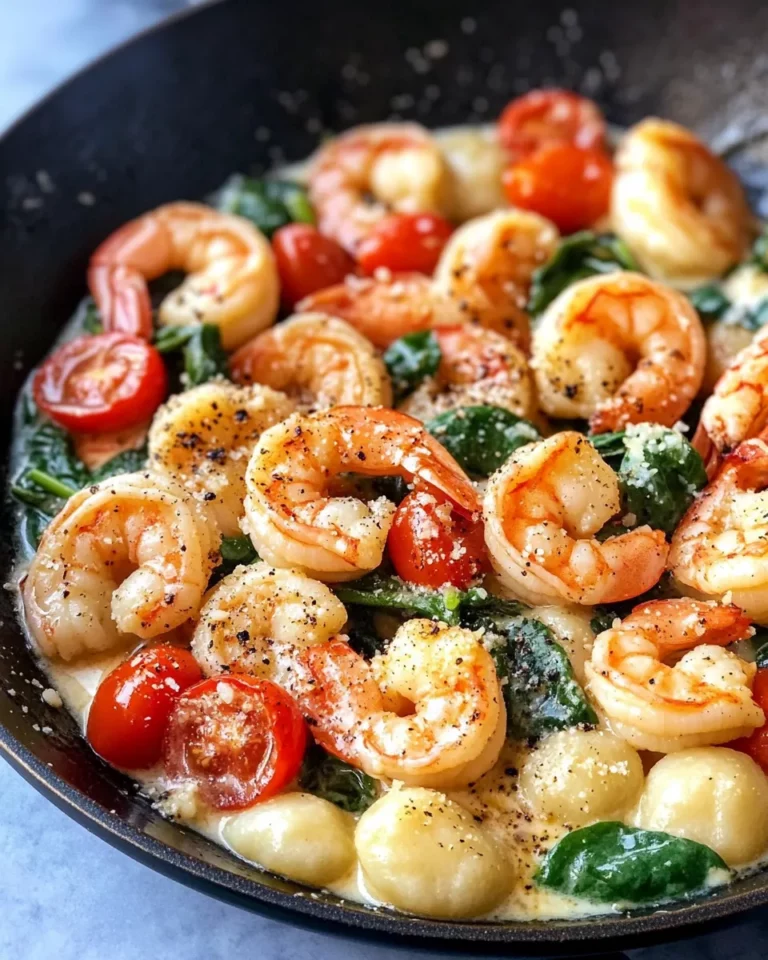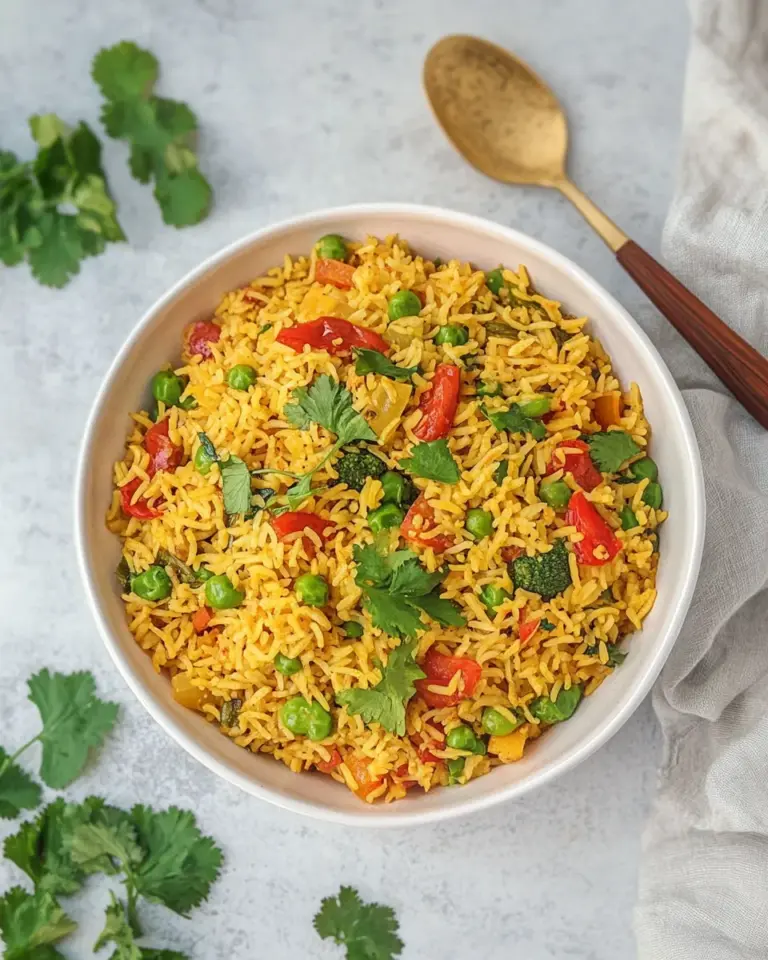Baked Lemon Parmesan Salmon with Crispy Potatoes
If you’re craving a dinner that’s effortlessly elegant, packed with flavor, and comes together in one pan, then Baked Lemon Parmesan Salmon with Crispy Potatoes is your new go-to. This dish blends the bright, zesty notes of lemon with the rich, nutty flavor of Parmesan, all perfectly complementing tender, flaky salmon. Paired with golden, crispy baby potatoes, it’s a balanced meal that’s as satisfying as it is simple. Whether you’re cooking for family, friends, or just yourself, this recipe promises a delightful combination of textures and tastes that will have you coming back for seconds.
Why It Deserves a Spot
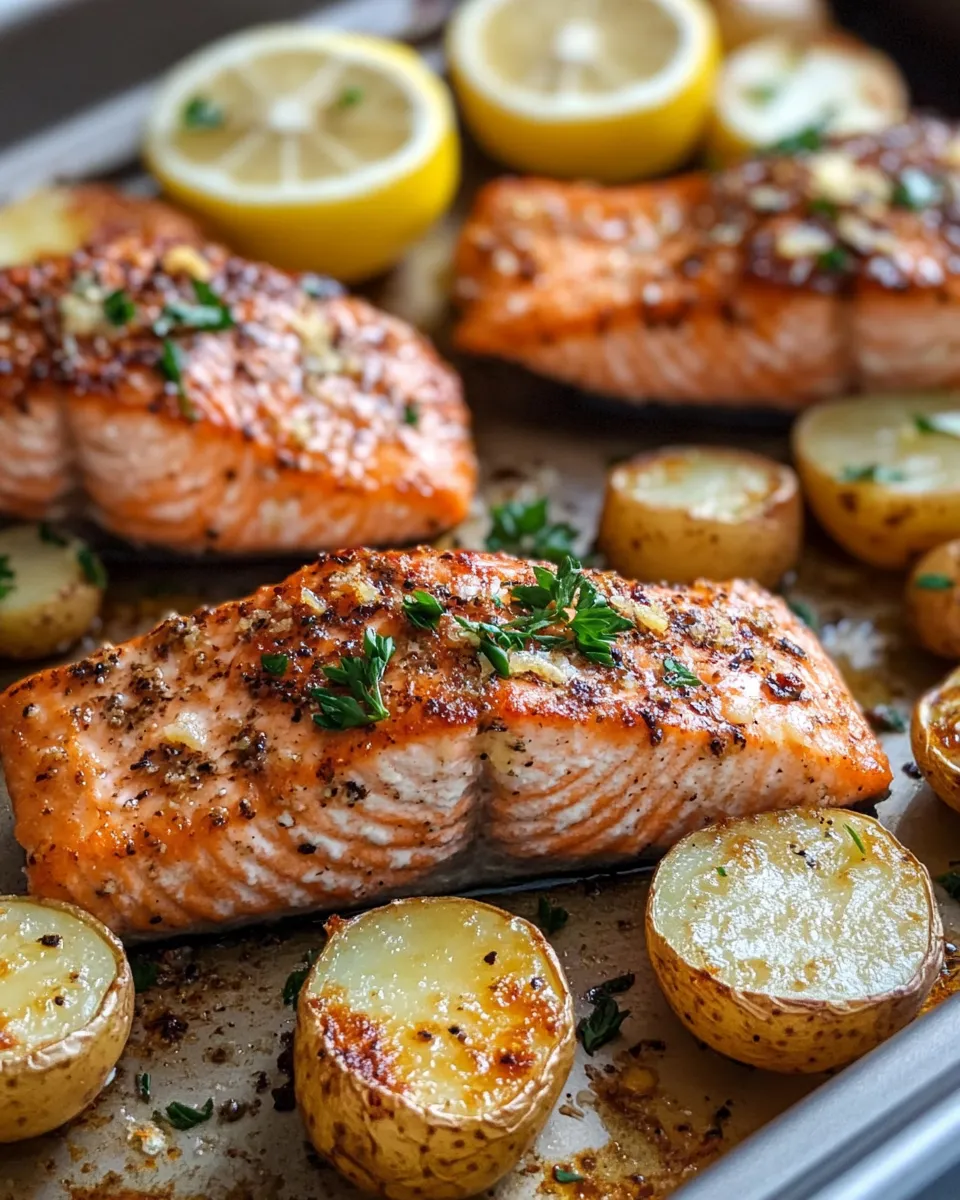
This Baked Lemon Parmesan Salmon with Crispy Potatoes recipe deserves a spot in your weekly rotation for so many reasons. First, it’s incredibly easy to prepare — everything cooks on one sheet pan, making cleanup a breeze. The salmon stays moist and flavorful, thanks to the lemon juice and garlic, while the Parmesan adds an irresistible savory crust. Meanwhile, the baby potatoes roast to crispy, tender perfection, soaking up the olive oil and seasonings. Plus, it’s a healthy and balanced meal, rich in omega-3 fatty acids and antioxidants. If you’re looking to impress without spending hours in the kitchen, this dish hits all the right notes.
Ingredients at a Glance
- 4 salmon fillets (about 6 oz each)
- 2 tablespoons olive oil
- 1 lemon (zested and juiced)
- 1/4 cup grated Parmesan cheese
- 2 cloves garlic (minced)
- 1 teaspoon dried thyme
- Salt and pepper to taste
- 1 pound baby potatoes (halved)
- 1 tablespoon fresh parsley (chopped, for garnish)
Must-Have Equipment
- Baking sheet: A sturdy rimmed baking sheet to hold the salmon and potatoes without spilling.
- Mixing bowl: For tossing the potatoes in olive oil and seasonings.
- Grater or microplane: To zest the lemon finely.
- Knife and cutting board: For prepping the potatoes, garlic, and parsley.
- Aluminum foil or parchment paper (optional): To line your baking sheet for easy cleanup.
Baked Lemon Parmesan Salmon with Crispy Potatoes Made Stepwise
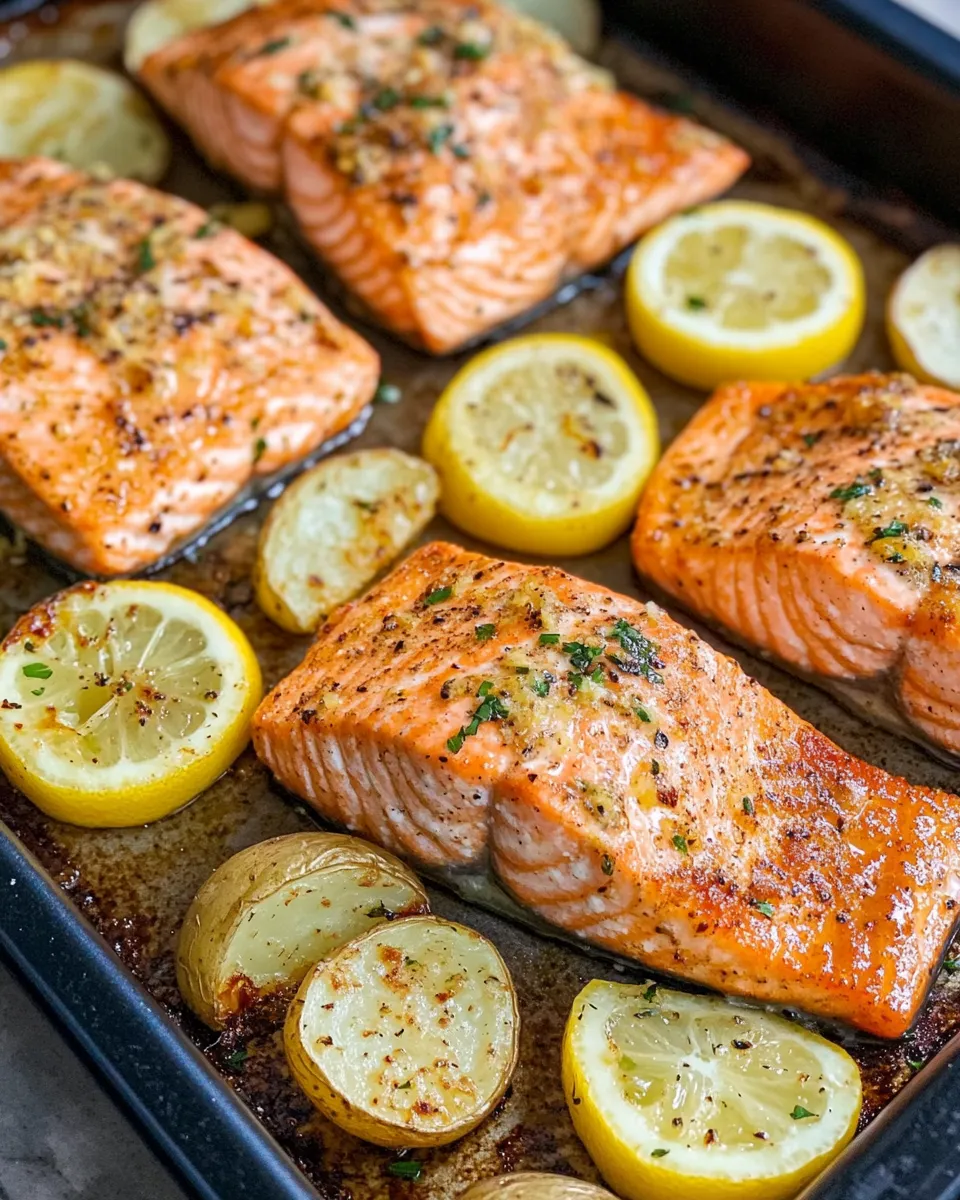
Step 1: Prep the Potatoes
Preheat your oven to 425°F (220°C). In a mixing bowl, toss the halved baby potatoes with 1 tablespoon of olive oil, half the minced garlic, dried thyme, salt, and pepper. Spread them out evenly on one side of your baking sheet. Pop the potatoes into the oven and roast for about 20 minutes to start getting them nice and crispy.
Step 2: Prepare the Salmon
While the potatoes begin roasting, pat the salmon fillets dry with paper towels to ensure a crispier finish. In a small bowl, mix together the remaining olive oil, lemon zest, lemon juice, remaining garlic, and a pinch of salt and pepper. Brush this lemony mixture generously over each salmon fillet.
Step 3: Add Parmesan Topping
Sprinkle the grated Parmesan cheese evenly over the salmon fillets. This will create a golden, cheesy crust that pairs beautifully with the citrus and garlic.
Step 4: Combine and Continue Baking
After the potatoes have roasted for 20 minutes, remove the baking sheet from the oven. Arrange the salmon fillets on the empty side of the sheet. Return the sheet to the oven and bake for another 12-15 minutes, or until the salmon flakes easily with a fork and the Parmesan is golden brown.
Step 5: Garnish and Serve
Once done, sprinkle the chopped fresh parsley over the potatoes and salmon for a pop of color and fresh flavor. Serve immediately for the best texture and taste.
Make It Year-Round
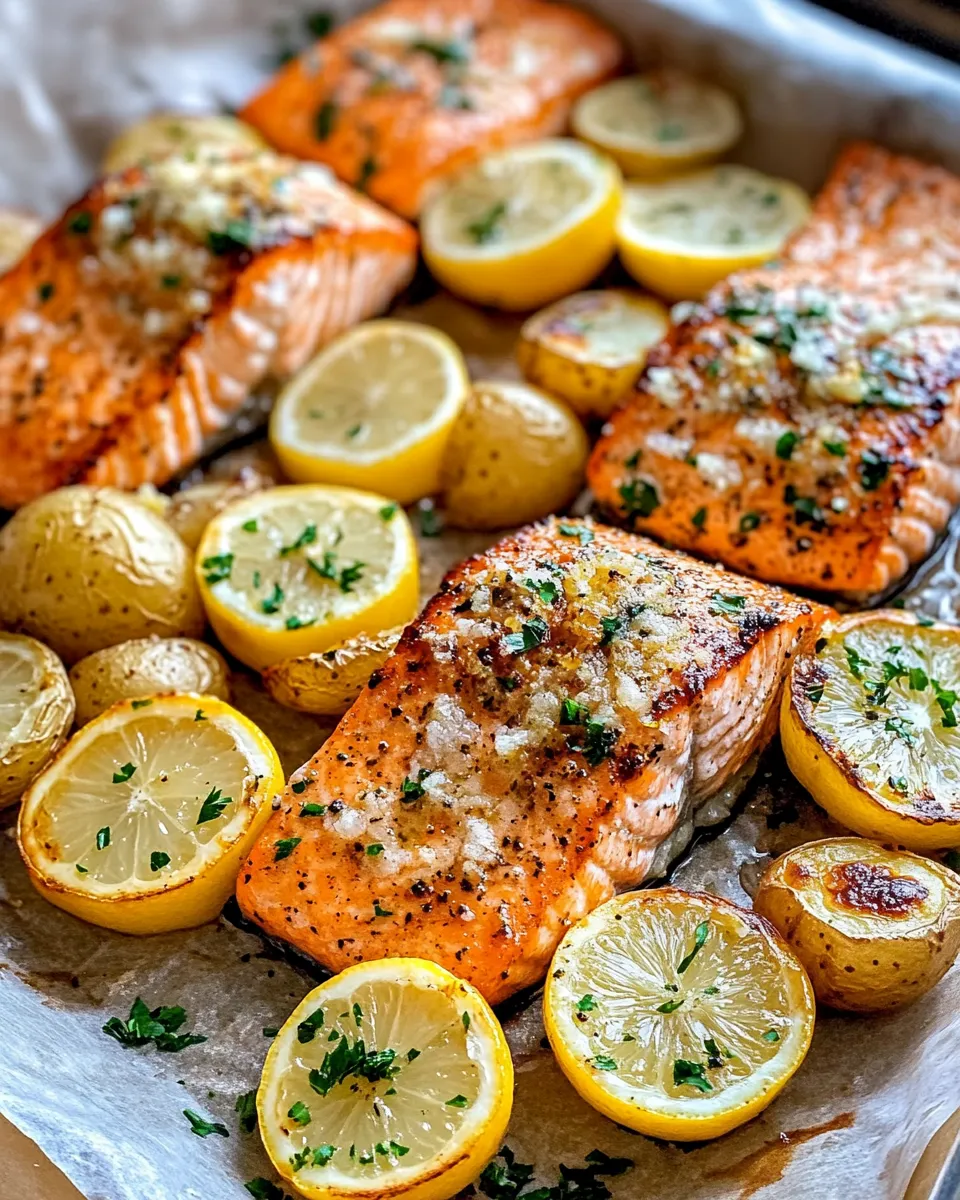
- In spring and summer, swap baby potatoes for roasted asparagus or zucchini for a lighter side.
- During fall and winter, try this recipe with fingerling potatoes and a sprinkle of smoked paprika for extra warmth.
- Use fresh thyme instead of dried when it’s in season for a more vibrant herb layer.
- Switch up the lemon for lime to add a tropical twist to your Baked Lemon Parmesan Salmon with Crispy Potatoes.
Avoid These Mistakes
- Don’t overcrowd the baking sheet — give the potatoes and salmon enough space to roast properly and develop crispiness.
- Avoid skipping the pat-dry step for the salmon; moisture on the fish can prevent that desirable crispy crust from forming.
- Be careful with the salt — Parmesan cheese is naturally salty, so adjust seasoning accordingly to avoid an overly salty dish.
- Overbaking the salmon can dry it out; check for doneness around the 12-minute mark to keep it tender and flaky.
Refrigerate, Freeze, Reheat
Leftovers of this Baked Lemon Parmesan Salmon with Crispy Potatoes can be stored in an airtight container in the refrigerator for up to 3 days. For best quality, consume within this period. To freeze, place the salmon and potatoes in freezer-safe containers and keep for up to 2 months. When reheating, thaw in the refrigerator overnight if frozen, then warm in a 350°F (175°C) oven for 10-15 minutes to help maintain crispiness. Avoid microwaving as it can make the potatoes soggy and the salmon rubbery.
Ask & Learn
Can I use frozen salmon fillets for this recipe?
Yes, you can use frozen salmon fillets, but make sure they are fully thawed and patted dry before baking to ensure even cooking and a crispy topping.
What can I substitute for Parmesan cheese if I’m lactose intolerant?
For a lactose-free option, you can substitute Parmesan with nutritional yeast or a dairy-free vegan Parmesan alternative to maintain that cheesy flavor.
Is it possible to make this recipe spicy?
Absolutely! Add a pinch of red pepper flakes to the lemon and olive oil mixture or sprinkle some cayenne pepper on the potatoes before roasting for a subtle kick.
How do I know when the salmon is perfectly cooked?
The salmon is done when it easily flakes apart with a fork and its internal temperature reaches 145°F (63°C). The flesh should be opaque and tender.
Next Steps
Now that you have this beautifully balanced Baked Lemon Parmesan Salmon with Crispy Potatoes recipe in your arsenal, try experimenting with herbs and sides to make it uniquely yours. Consider pairing it with a fresh green salad or steamed broccoli for an extra dose of nutrients. Don’t forget to bookmark this recipe for those busy weeknights when you want something quick yet impressive. Happy cooking!
Share on Pinterest

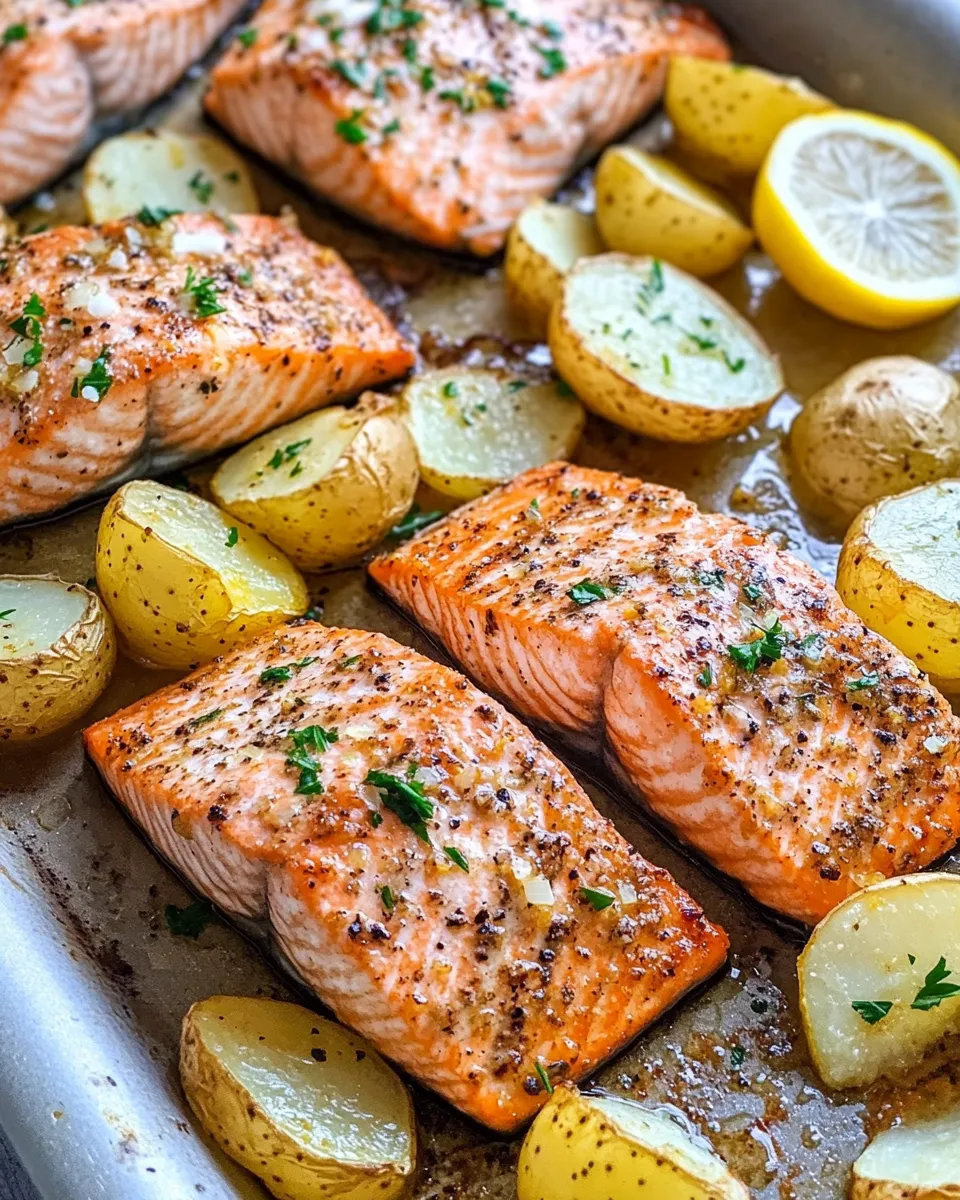
Baked Lemon Parmesan Salmon with Crispy Potatoes
Ingredients
Equipment
Method
- Preheat your oven to 425°F (220°C). In a mixing bowl, toss the halved baby potatoes with 1 tablespoon of olive oil, half the minced garlic, dried thyme, salt, and pepper. Spread them out evenly on one side of your baking sheet. Pop the potatoes into the oven and roast for about 20 minutes to start getting them nice and crispy.
- While the potatoes begin roasting, pat the salmon fillets dry with paper towels to ensure a crispier finish. In a small bowl, mix together the remaining olive oil, lemon zest, lemon juice, remaining garlic, and a pinch of salt and pepper. Brush this lemony mixture generously over each salmon fillet.
- Sprinkle the grated Parmesan cheese evenly over the salmon fillets. This will create a golden, cheesy crust that pairs beautifully with the citrus and garlic.
- After the potatoes have roasted for 20 minutes, remove the baking sheet from the oven. Arrange the salmon fillets on the empty side of the sheet. Return the sheet to the oven and bake for another 12-15 minutes, or until the salmon flakes easily with a fork and the Parmesan is golden brown.
- Once done, sprinkle the chopped fresh parsley over the potatoes and salmon for a pop of color and fresh flavor. Serve immediately for the best texture and taste.
Notes
- Do not overcrowd the baking sheet to ensure potatoes and salmon roast properly and become crispy.
- Pat salmon dry before baking to achieve a crispy crust and avoid sogginess.
- Adjust salt carefully since Parmesan cheese is naturally salty to prevent over-seasoning.
- Check salmon doneness around 12 minutes to avoid overbaking and dryness.
- Leftovers can be stored in the refrigerator for up to 3 days or frozen for 2 months; reheat in oven to maintain texture.

